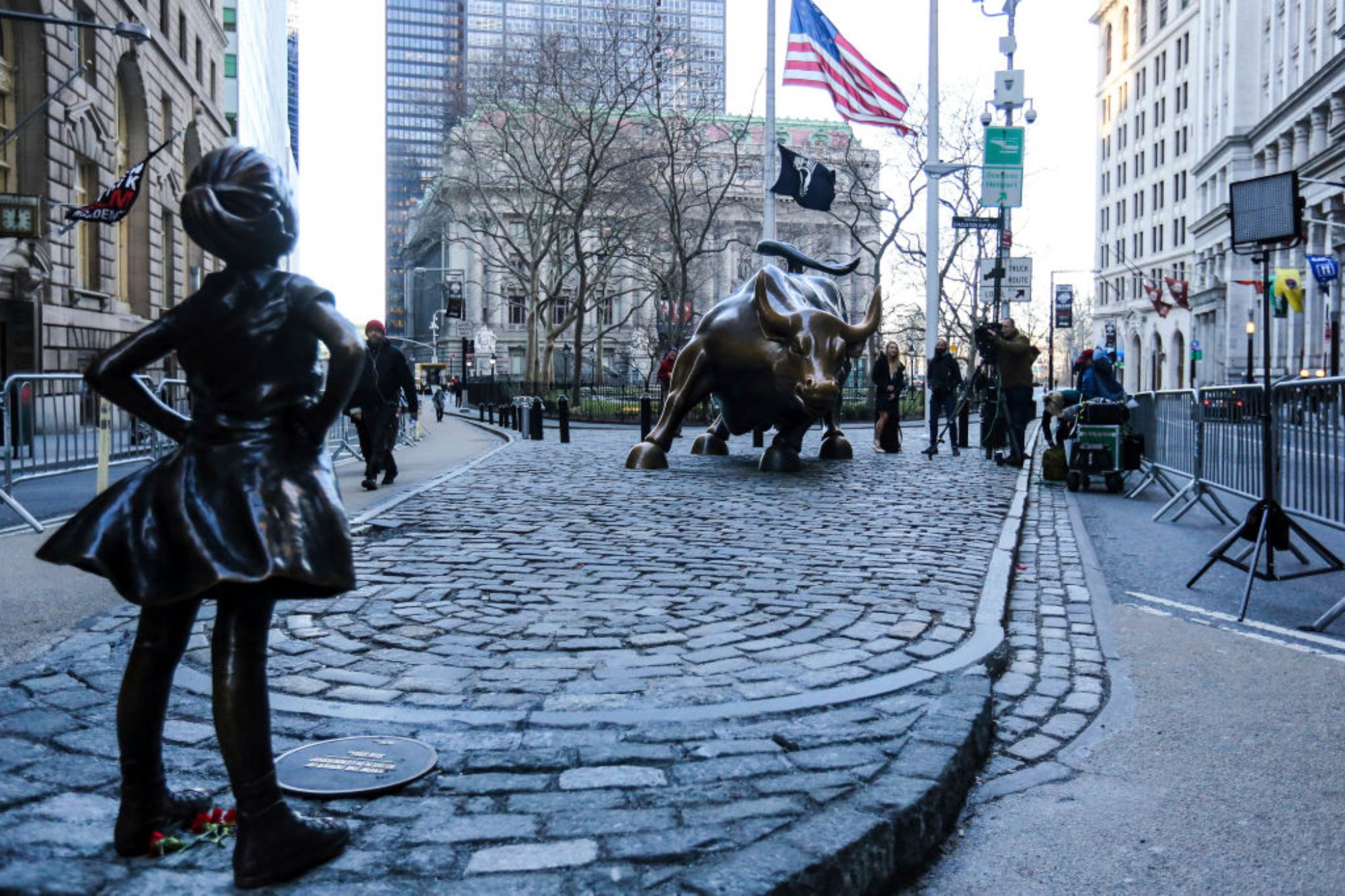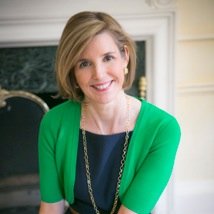You couldn’t miss it: the #FearlessGirl facing off against the big, angry, snorting bull in the Wall Street district.* She was placed there by asset manager State Street on International Women’s Day (“IWD”), to draw attention to its call for companies to increase their representation of women on boards.
But because no good publicity stunt goes unpunished, the company then found itself the subject of a few articles looking at its own board and senior leadership team composition, both of which are a long way from fully diverse. Let’s just say that the company’s best defense is that they are…well…average: their senior leadership team is 14% women, and both of them are in support roles. By my calculations, that is almost exactly average among financial services companies, so more the moral middle ground than the high ground.
(The irony is that it appears that the company itself doesn’t qualify for the investment product that the girl statue is promoting; that product invests in “companies with a relatively high proportion of women in executive and director positions.” Maybe they’ll send themselves a strongly worded letter.)
Well, ok…
The broader issue is that this little girl on Wall Street raises questions that go well beyond female board representation. When I look at her, I think beyond IWD, beyond the social media buzz and emotional pull of the whole thing, to the world we’re shaping for her economically. It brings up the bigger issue of women and money…and how women have less of it than men do. As Gloria Steinem has said, “Nothing changes the gender equation more significantly than women’s economic freedom.” My view: women will not be fully equal with men until we are financially equal with men. (And as if we needed a reminder of just how far we are from financial equality, some Wall Street bro promptly…um….drunkenly attacked the statue.)
The investing industry has played a key role in this financial disparity. One of the drivers of the gender money gap is the “gender investing gap,” which can cost women hundreds of thousands — even millions — of dollars over the course of their lives. While the industry’s conventional wisdom is that women’s failure to invest as much as men is somehow women’s “fault” (because of risk aversion, needing more financial education, not being as good investors as men), none of these explanations hold up under the barest of scrutiny.
Instead, it’s likely no coincidence that an industry that tilts so male — 86% of Financial Advisors are men — fails to serve women as well as it serves men. And while the rest of corporate America can perhaps claim that they really are meritocracies, they just can’t find women who are “good enough” to be in the senior roles (bs, we all know…but some still claim it), the investing industry has no such luxury.
That’s because the research tells us that women aren’t almost as good investors as men, or even just as good investors as men; the research tells us they can be better. Just last week brought new research on this from Fidelity and results from the HRFI Women index (which tracks hedge funds) on women outperforming male investors. The poor representation of women in the field is getting to be where it’s an almost willful rejection of the facts.
But, wait, there’s more.
You know, the financial crisis. Talk about wealth destruction. And, don’t think it’s a coincidence that a non-diverse industry like Wall Street fueled a crisis of this magnitude. In fact, research has indicated that homogenous markets tend to be mispriced by an average of 58%. The market decline in the financial crisis? Almost exactly that.
You may be thinking: that was then, this is now. But if you think we’ve made any notable progress on diversity in the industry since then, you’d be wrong. It’s true at the senior levels, and even look at segments of the industry that were hailed as women friendly on International Women’s Day. Here is the IWD headline on “passive investing”:
And here is the same segment of the investing market just a few days later (on “Not-International-Women’s-Day):
And, darn it, State Street: that’s your guy on the bottom left. (It’s also worth noting that when I asked the woman who works in the industry and sent these two pictures to me if I should credit her for noticing this juxtaposition, she declined, fearing backlash.)
Ok, so what can we women do?
Invest anyway. It is an act of feminism to be in control of your money and to be actively working to increase your net worth. It’s a gift to our daughters (our own #FearlessGirls) to see us do so, just as it is a gift for them to see us in control in other areas of our life. And once the industry sees women as a viable market (as opposed to the “niche” market they now call us), they will work harder to serve us better.
Ask your financial provider about its gender diversity, both at their senior level and among their investment managers. Go ahead, send an email. I’ll wait.
And then don’t let the companies off the hook on this. I was on Bloomberg TV not so long ago with a Portfolio Manager who talked about how much he likes women as employees…and what a great job they do…but that his company doesn’t seem to be able to keep them. My reply (which I sort of couldn’t believe I said on TV): “Have you thought about promoting them?” His jaw dropped; literally dropped. It was clear it hadn’t crossed his mind.
An even better question: ask your investment provider how they can ignore the performance numbers put up by women investors, particularly if they hold themselves out as a fiduciary (who are required to act in the best interest of their clients). I recently resigned from an investment committee because they would not include more women amongst their investment managers.
Talk about this stuff with our female friends and colleagues: about money, about investing. Let’s get rid of all of the weirdness around it. We should also talk about diversity in this important industry, about financial services companies’ responsibilities to us as their clients and their responsibilities that arise from their role as the lifeblood of the economy. A publicity stunt is good; having it ignite a conversation about women and money and having us continue it is even better – even if some of those conversations are awkward for the company that so graciously started it.
For those of us in the industry, we should do everything we can.. For me, that meant turning down offers to work in more traditional firms and start an investing firm squarely focused on investing for women. With a team that looks like this:
instead of like this:
Yes, because I want to be fair. But also because the numbers tell me it’s smart. We all have a responsibility to #FearlessGirl to be #FinancialFeminists.
*Huge congrats to the smart, creative folks at McCann for the concept and its sharp execution.*
Sallie Krawcheck is the CEO and Co-Founder of Ellevest, an innovative digital investment platform for women. She is Chair of the Pax Ellevate Global Women’s Index Fund and of Ellevate Network. She is also the author of “Own It: The Power of Women at Work.” In her prior life, she was CEO of Smith Barney and Merrill Lynch Wealth Management.







